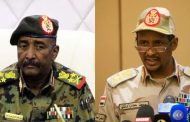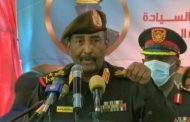Many have sent me a message commenting that “we have expected to see you at the economic conference”. I told them that I had not been invited. However, this is not the main reason that I hadn’t been there because as an academic I should have gone there. Actually, I am not enthusiastic to attend the three-day economic conference which started on Saturday, September 26, in Khartoum. Being reluctant to attend does not mean belittling the conference which was opened by a paper presented by Prime Minister, Dr. Abdallah Hamdok.
I do appreciate the papers presented, and to be presented, at the conference; and appreciate the effort exerted by the writers/presenters of the papers at the conference which was rescheduled from last March to September due to the conditions imposed by the Corona Virus pandemic. In principle the conference is very important to propose solutions to the chronic and acute problems of the Sudanese economy. But I do believe that the essence of the crisis of Sudan is political – not economic.
Over many years so many economic conferences were organized which came out with valuable recommendations to treat the ailing economy. However, the outputs of these conferences remained ‘ink on paper’!
Theorizing and framing solutions to the national economy is not a difficult task as we have good scholars and experts to work out applicable suggestions in the field of economics. What the Sudan is lacking is the political will necessary for making these studies a reality. It is generally noted that the Sudanese are good at talking, but do not put words into action.
If Prime minister presented a “framework paper’ or a leading paper at the conference which included a vision for future, it remains the job of other papers to address the current economic crisis and to propose proper and workable solutions to the urgent economic problems so that the Transitional Government could adopt them in form of strategies, policies, programmes, projects and implement them according to priorities. One obvious shortcoming in the performance of the Transitional Government is the lack of a clear vision with regard to arranging priorities of the transitional period.
A great deal of time, effort and money have been spent in either marginal issues or vital issues but it is not their time or do not constitute a necessity for the people who are now suffering more than what they had under the demise regime of Omer Al-Beshir. It is high time that the emergent demands and urgent problems of the masses are addressed; otherwise no economic conference can be useful or rescue the citizens from this miserable economic condition.
https://khartoum-today.net/
 Sudan army chief Al Burhan freezes bank accounts of paramilitary RSF
Sudan army chief Al Burhan freezes bank accounts of paramilitary RSF Sudan’s SAF & RSF sign agreement intended to lay groundwork for humanitarian assistance
Sudan’s SAF & RSF sign agreement intended to lay groundwork for humanitarian assistance SAF, RSF agree on extension truce for the sixth time
SAF, RSF agree on extension truce for the sixth time Army, RSF agree to extend truce for 72 hours
Army, RSF agree to extend truce for 72 hours Sudanese people fled to Egypt amid acut humanitarian crisis
Sudanese people fled to Egypt amid acut humanitarian crisis THE ELEPHANT IN THE ROOM
THE ELEPHANT IN THE ROOM Death toll from Sudan fighting tops 180 as clashes in Khartoum enter fourth day
Death toll from Sudan fighting tops 180 as clashes in Khartoum enter fourth day By the UN Secretary-General Op-ed on G20 – 8 billion
By the UN Secretary-General Op-ed on G20 – 8 billion A strong military key to maintaining world peace
A strong military key to maintaining world peace Beautiful China shows new chapter of ecological conservation
Beautiful China shows new chapter of ecological conservation

ECONOMIC CONFERENCE : WHICH WAY TO GO?
About the author
Related Articles
2020 All rights reserved khartoum-today.net 0124293222






